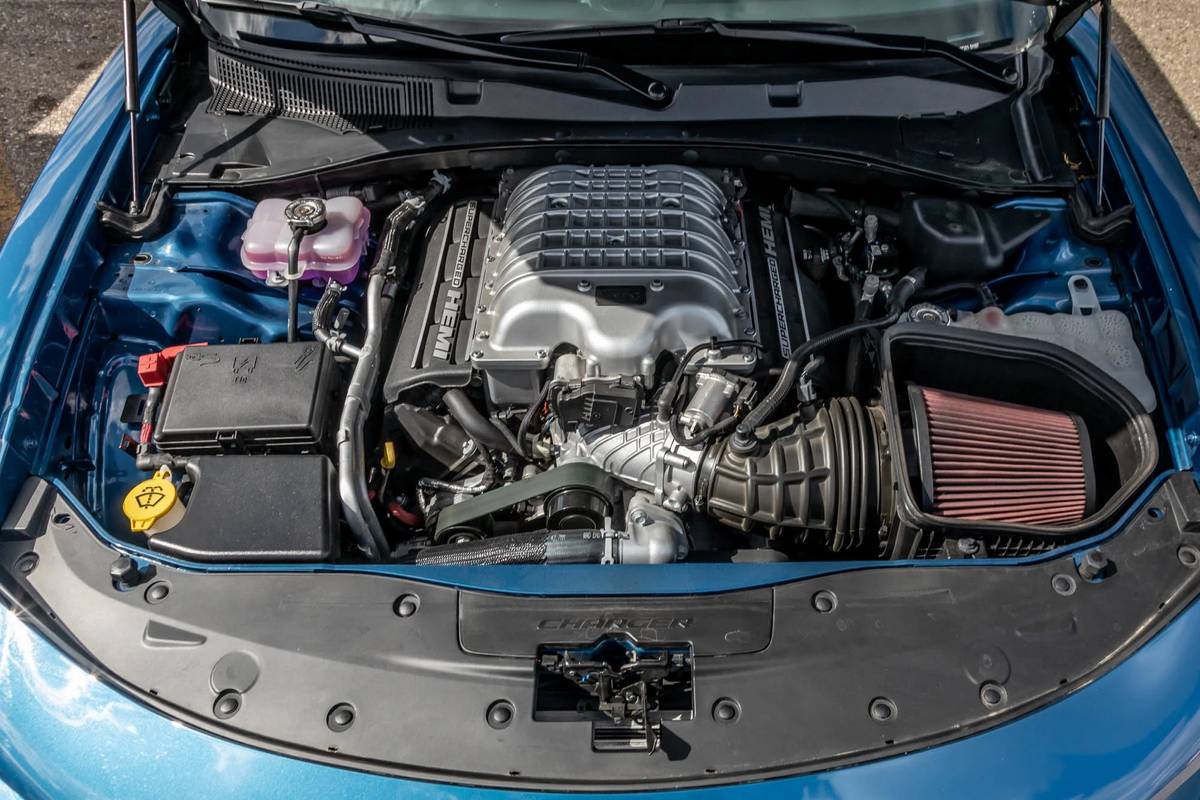What Is a Misfire and What Causes It?


Editor’s note: This article was last updated on June 27, 2021. It has been reviewed by Cars.com Senior News Editor Jennifer Harrington and is still accurate.
An engine misfire is when one or more cylinders doesn’t produce power, and there are several possible causes, from a fouled spark plug to a clogged fuel injector or faulty oxygen sensor.
Signs that an engine Is misfiring include slower acceleration or shaking during acceleration; the engine also might hesitate or briefly lose power. At idle, the engine might vibrate more than usual and run unevenly. Misfires can occur when an engine is cold or warm, and they can occur intermittently.
Related: Is Your Check-Engine Light On? 5 of the Most Common Causes
Misfires usually cause the check-engine light to illuminate. Fuel economy also is likely to suffer, and emissions might increase because unburned gasoline is exiting the engine.
Finding the Cause
To find the cause of a misfire, start with checking for trouble codes in the onboard diagnostics system with a scan tool. The codes may not pinpoint a specific part, but they should identify the cylinder or cylinders that are misfiring as well as other systems that aren’t functioning properly. An approximately $50 code reader will provide less information than a much more expensive professional reader that a shop is likely to use.
Historically, misfires were frequently caused by spark plugs because they used to last 12,000 miles or less. Plugs needed to be replaced often because electrodes would wear out, deposits would build up on the electrodes or ceramic insulations would crack. Thanks to modern electronic ignition systems, computerized engine controls and plugs that have platinum and iridium electrodes, spark plugs now often last more than 100,000 miles. As they wear, the engine computer adjusts the air-fuel mixture and spark timing to compensate and keep deposits from forming.
However, plugs can still wear out and collect deposits that prevent them from firing at full strength. That means some or all the air-fuel mixture is not being burned. A misfire is one possible result.
Other Common Causes
A fuel injector can clog from dirt or carbon, or fail for another reason. If it can’t deliver fuel, then there’s only air in the combustion chamber, which can also result in a misfire.
Ignition coil packs and wires could also be to blame. Each cylinder has an ignition coil pack (or coil packs that serve two cylinders) that sends electricity to the spark plug that then ignites the air-fuel mixture. These, too, can fail, and the wires that connect them can wear out. If there’s no electricity, there won’t be a spark.
Vacuum leaks can also be the problem. Engines have dozens of small vacuum hoses that enable air flow, and a tiny pinhole in one of these hoses can create havoc because the computer can’t figure out how much air and fuel to feed to the combustion chamber.
Emissions system parts also play an important role. The amount of air and fuel that goes into an engine, and the timing and intensity at which spark plugs fire, depends in part on information that the engine computer receives from various emissions controls. A clogged or failed exhaust gas recirculation or crankcase ventilation valve or faulty oxygen sensor can send the wrong signals to the computer and cause misfires.
Misfires could also be caused by an issue with the catalytic converter. Engines need to breathe well to run well, and a clogged catalytic converter in the exhaust system can create problems upstream, such as overheating or misfires.
Other internal engine parts could also be to blame. Engines depend on seals and gaskets to keep air and fluids flowing where they should and maintain optimum compression. Leaks in valve seals and manifold gaskets can reduce engine power and cause misfires. Worn valve guides or broken piston rings could also cause the problem.
Because there are several possible causes of misfires, diagnosis by an experienced technician is a better choice than guessing which parts should be replaced.
Misfires also shouldn’t be ignored, even if they’re intermittent, because they are a clear sign that something needs repair or replacement. Left unfixed, they could cause more damage.
More From Cars.com:
- What Does VSA Stand For?
- What Does TCS Stand For?
- Why Do I Keep Getting Phone Calls About My Car’s Warranty Expiring and How Do I Stop Them?
- Find Your Next Car
Related Video:
Cars.com’s Editorial department is your source for automotive news and reviews. In line with Cars.com’s long-standing ethics policy, editors and reviewers don’t accept gifts or free trips from automakers. The Editorial department is independent of Cars.com’s advertising, sales and sponsored content departments.

Contributor Rick Popely has covered the auto industry for decades and hosts a weekly online radio show on TalkZone.com.
Featured stories




